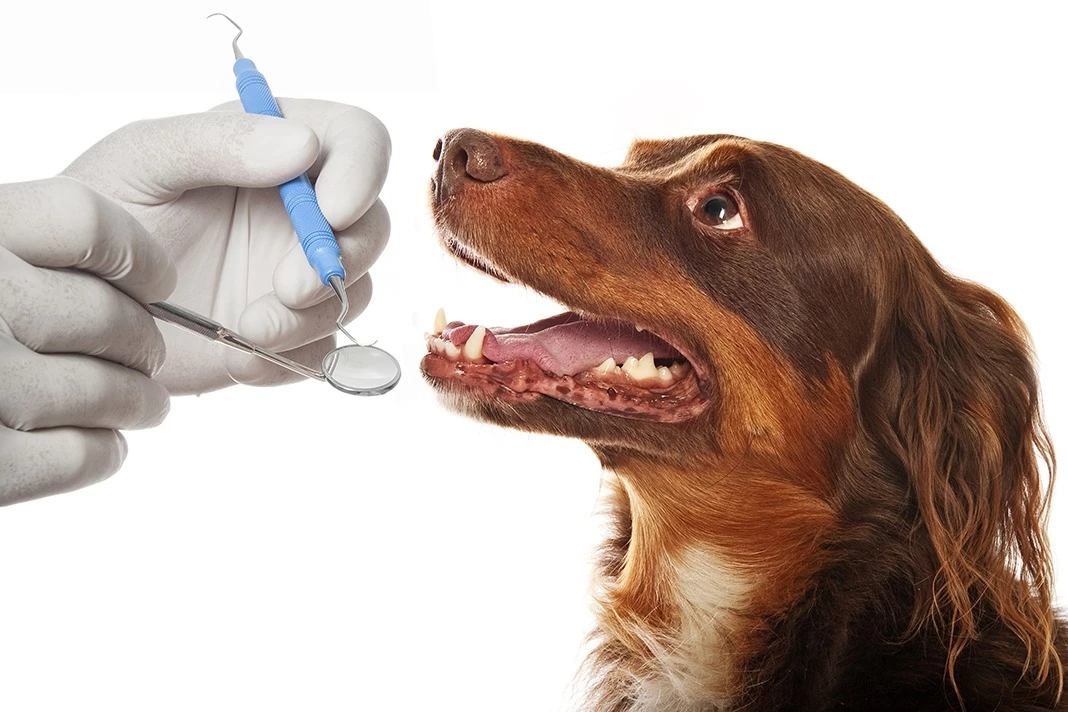Why does a pet dental cleaning cost more than human?
Erik C. | Oct 7, 2020 | 2 min read

Humans have 32 teeth. Dogs and cats have 42 and 30 respectively. Generally, humans brush and floss 2 times a day and visit the dentist every 6 months for an evaluation and prophylaxis. Very few animals get that same care. While we evaluate the teeth on an annual exam, it is often difficult to fully uncover all problems in the mouth. Therefore, when a veterinarian performs a dental cleaning, general anesthesia is needed.
Anesthesia is safe and the surest way to provide the best outcome for most dental procedures. Humans understand what is happening when the hygienist and dentist are working in the oral cavity. Most animals do not and would resist while we clean and polish the teeth. Inquire with your veterinarian if he/she performs a physical exam, bloodwork and an EKG before giving anesthesia. These are important to avoid unknown complications and make for a smoother experience and happy outcome. Often, we find issues (broken teeth, tumors, periodontal disease) that were not evident while the patient was awake. Additionally, it is impossible for us to take X-Rays without anesthesia.
Animals innately tend to have a high tolerance for pain and will mask that pain so that it is often below detection by owners or veterinarians. Yes, animals will eat and drink with oral pain and we all know there is not much more painful than a bad tooth or oral disease.
Pet husbandry has 3 basic components: a quality diet, preventive health and exercise. All three of these are tied to oral health. A quality diet provides essential nutrients and delivers the proper balance of nutrition for improved overall health. Preventive care includes regular teeth cleanings along with appropriate vaccinations and parasite prevention. Exercise, whether it be playing ball, walking, or swimming improves vitality, engages the pet with his/ her owner, and establishes trust with caretakers. If owners take care of these three things, their pet will enjoy a higher quality of life and save their owners significant costs throughout their lifetime. With dental disease being the most common malady in those pets over the age of 2, it is well worth the expense to invest in their health.
Please contact your veterinarian with questions and look forward to healthy breath in your pet!
